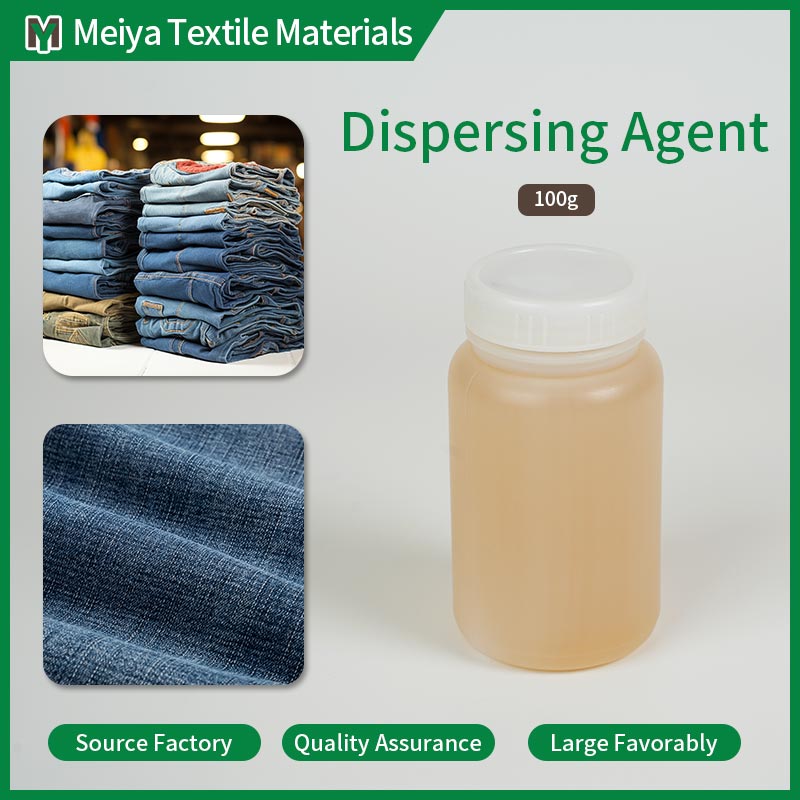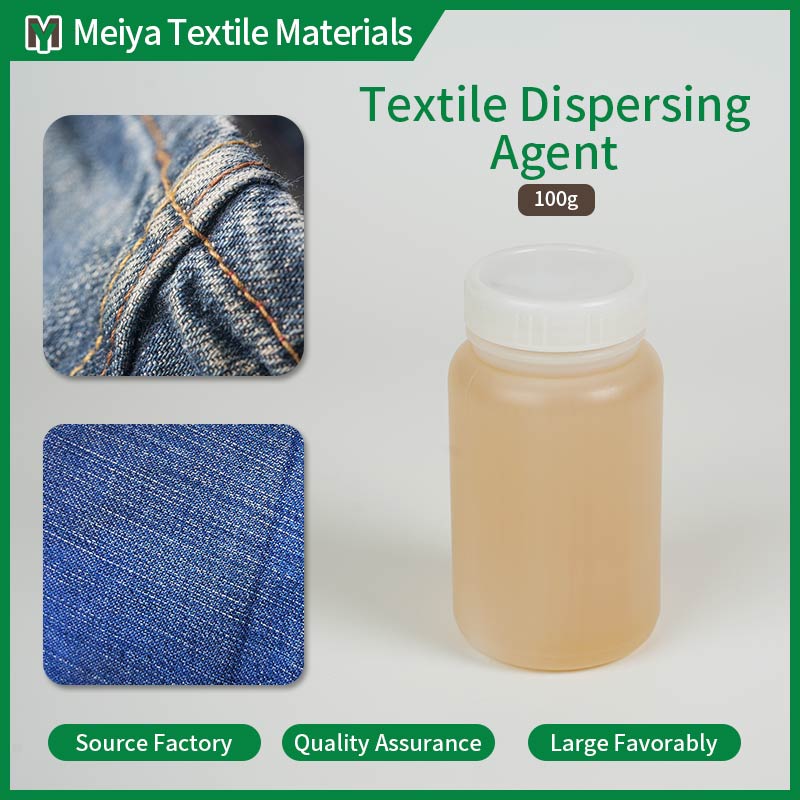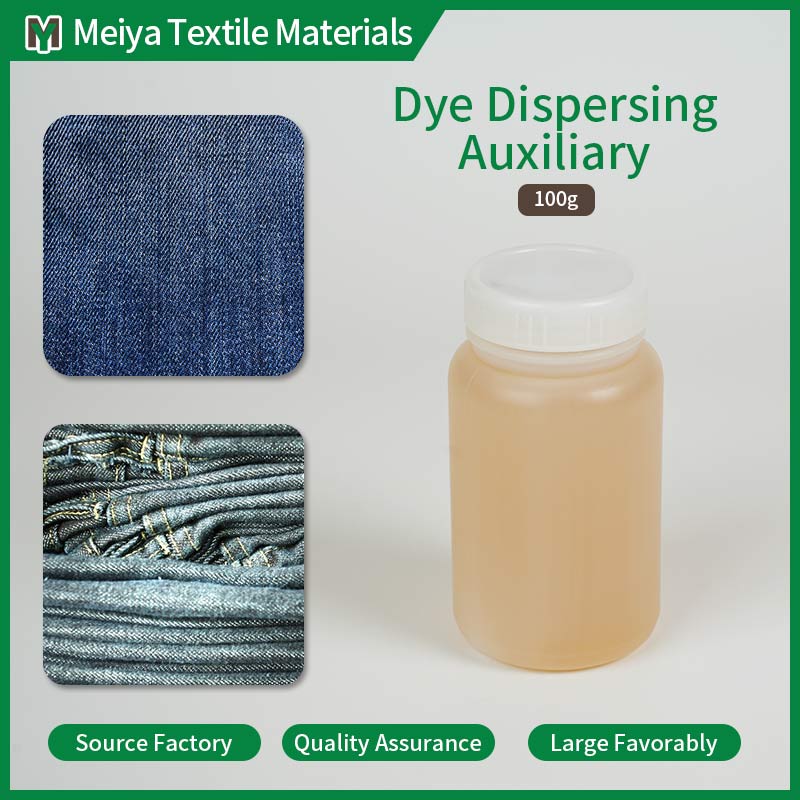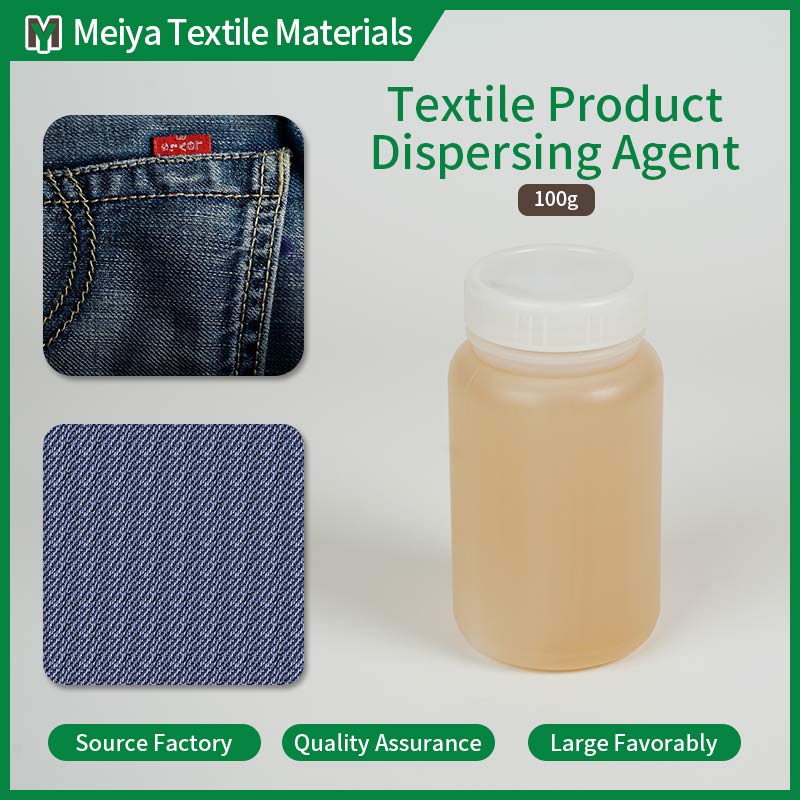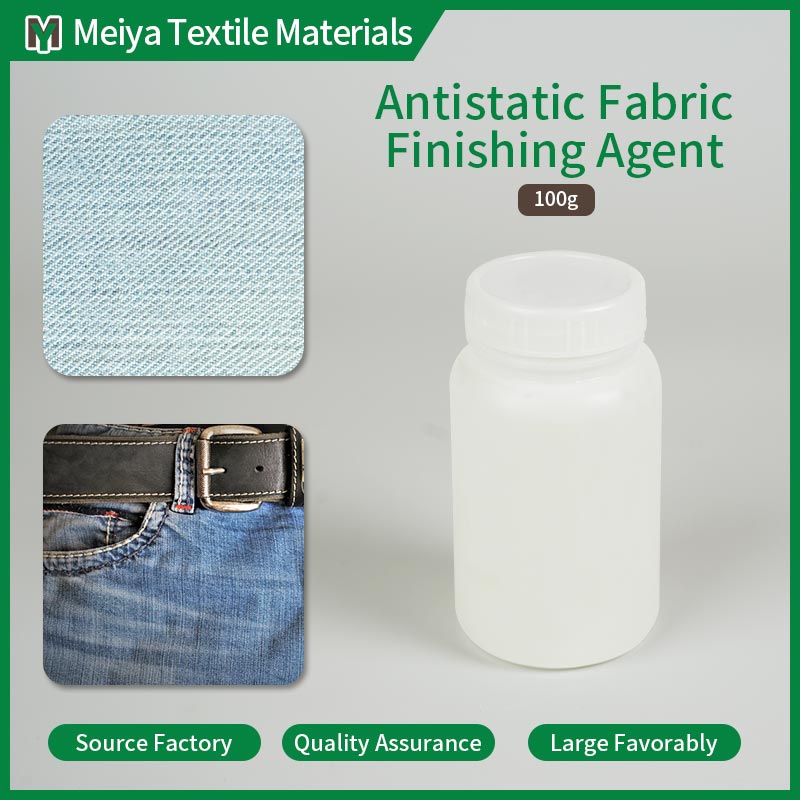Fabric Antistatic Finishing Agent
Please click the button below to contact us.
Introduction:The Fabric Antistatic Finishing Agent is a specialized product with the aim of upping the performance and quality of various textiles via static elimination. This advanced formulation, provided by a leading China Fabric Antistatic Finishing Agent Producer, ensures that fabrics remain static-free, improving their comfort and usability.
Product Description
The Fabric Antistatic Finishing Agent is a specialized product with the aim of upping the performance and quality of various textiles via static elimination. This advanced formulation, provided by a leading China Fabric Antistatic Finishing Agent Producer, ensures that fabrics remain static-free, improving their comfort and usability.
This 100g bottle of Fabric Antistatic Finishing Agent is perfect for many different types of fabric including denim as shown in the photo. Applying this agent will effectively neutralize any form of static charge on fabric thereby preventing them from sticking together or attracting dust, which makes it particularly useful for garments and textiles where static electricity can be an issue.
The product is especially useful for denim fabrics because their close weaves make them prone to attract and hold onto static electricity. Manufacturers can therefore make better jeans with these agents incorporated into them, hence enhancing how functional and comfortable they are.
Produced by a reputable China Fabric Antistatic Finishing Agent Producer, this product guarantees high quality and consistency. Each batch goes through stringent quality control checks at the source factory to ensure that it meets the highest standards possible. The agent’s effectiveness and cost-efficiency make it a popular choice among textile manufacturers, helping them achieve excellent results while maintaining production efficiency.
In conclusion, this product is indispensable to textile producers who want to improve on material functionality as well as comfort levels. When applied on fabrics; they remain free from electrical charges thus making it even more usable than before. Therefore whether in fashion garmenting where home textiles are concerned or industrial purposes this ingredient remains valuable in all textile processing workflows.
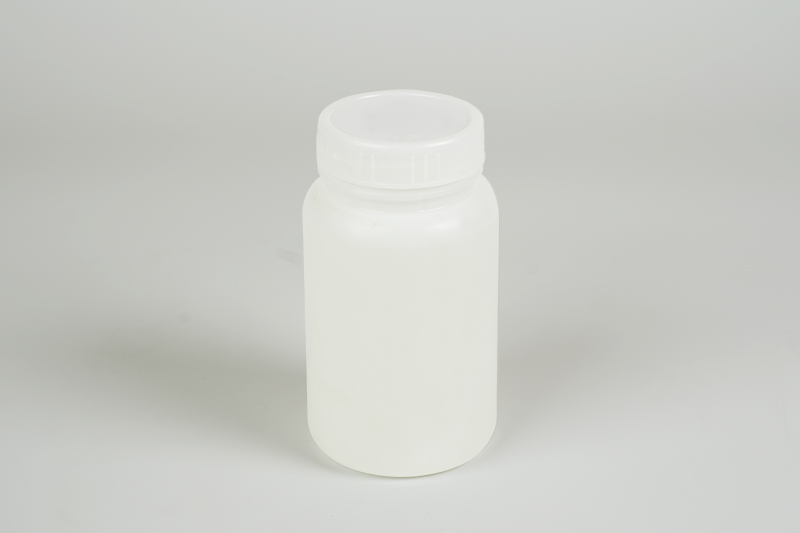
Fabric Antistatic Finishing Agent Features:
1. Static Reduction:
The agent effectively reduces static electricity in fabrics, preventing issues such as static cling, discomfort, and dust attraction.
2. Surface Resistivity Reduction:
By lowering surface resistivity, the Fabric Antistatic Finishing Agent facilitates the dissipation of static charges, ensuring textiles remain static-free.
3. Compatibility Across Fabrics:
Designed to be compatible with various fabric types, including natural fibers like cotton and wool, as well as synthetic fibers such as polyester and nylon.
4. Enhanced Comfort:
Fabrics treated with this agent provide enhanced comfort for wearers by minimizing static-related discomfort, such as clinginess or shocks.
5. Improved Safety:
Particularly valuable in industrial settings and technical textiles, the agent enhances safety by reducing the risk of static-related hazards.
Application of Fabric Antistatic Finishing Agent
Enhancing Comfort of Clothing
The Fabric Antistatic Finishing Agent is primarily used in garment treatment. Manufacturers can considerably increase the comfort of clothes through the inclusion of this agent. The agent prevents fabrics from becoming static and sticking to the body, attracting dust or lint.A case in point is daily wear like t-shirts, blouses, trousers and dresses.
Better Denim Fabrics
Denim has a tight weave, which tends to cause it to have a lot of static electricity making it feel stiff and uncomfortable. As seen in the photo provided , Fabric Antistatic Finishing Agent particularly works well on denim fabric. By using this product on denim fabrics, jeans, jackets and skirts will be prevented from getting charged thus increasing their comfort and durability as well.
Home Textiles
This product is also commonly used when manufacturing home textiles such as curtains, bed linen as well as upholstery.Incorporating Fabric Antistatic Finishing Agent into these materials ensures that they are not prone to developing static which attracts dirt leading to harder cleaning times.This makes them easier to maintain while at the same time enhancing user experience.
Industrial and Commercial Textiles
In industries or commercial settings there are dangers associated with static electricity including disruption of electronic equipment and increased fire hazards.Textile products applicable in these environments like protective clothing for instance work wear uniforms worn by employees working in factories toilet industry or even industrial filters must undergo treatment using anti-static fabric finishing agents so that they remain safe for use.
Automotive Textiles
It can also be used on automotive textiles e.g car seat covers.Thus , it helps in avoiding accumulation of dust particles and lint hence keeping vehicles clean with comfortable interiors.

Fabric Antistatic Finishing Agent FAQ
How is the Fabric Antistatic Finishing Agent applied?
The agent is typically applied during the finishing process of textile manufacturing. It can be added to the final rinse or applied as a finishing treatment to ensure even distribution throughout the fabric.
How does the Fabric Antistatic Finishing Agent improve fabric durability?
By eliminating static electricity, the agent reduces the friction and wear caused by static cling, enhancing the overall durability and lifespan of the fabric.
How does the Fabric Antistatic Finishing Agent affect the color of the fabric?
The agent does not affect the color of the fabric. It is designed to enhance the fabric’s performance without altering its appearance.
How should the Fabric Antistatic Finishing Agent be stored?
The agent should be stored in a cool, dry place, away from direct sunlight and moisture, to maintain its effectiveness.
How does the Fabric Antistatic Finishing Agent improve the tactile qualities of the fabric?
The agent enhances the softness and flexibility of the fibers, making the finished textiles more comfortable and pleasant to touch.

